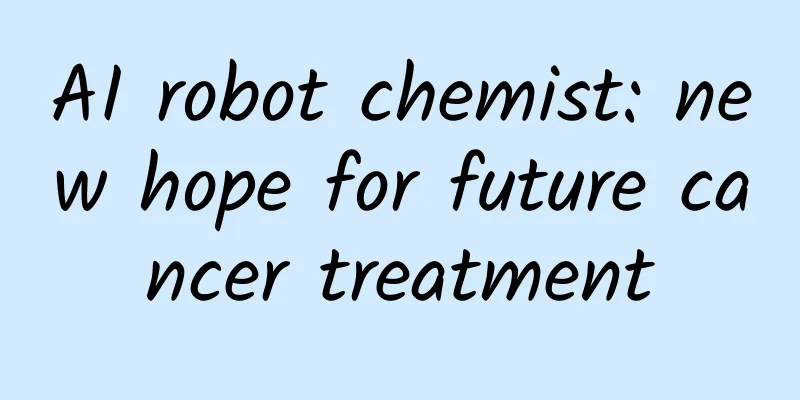AI robot chemist: new hope for future cancer treatment

|
Have you ever imagined that the explorer of future chemistry might be an artificial intelligence robot? This is not just a concept in science fiction, but a fact that is quietly happening around us. Artificial intelligence (AI) is reshaping the face of cancer treatment, making treatment plans more precise and personalized. Now, let us uncover the amazing applications of AI in cancer treatment! Application of AI in cancer treatment 1. Personalized treatment plans: AI can deeply analyze patients' genomic data, imaging data and clinical information to tailor treatment plans for each patient. Take the "DeepPT" model as an example. It was jointly developed by the Australian National University, the National Cancer Institute of the United States and Pangea Biomed Pharmaceuticals. It can assist doctors in selecting the most appropriate treatment by predicting the patient's messenger RNA (mRNA) profile. 2. Early diagnosis and detection: AI plays a vital role in the early diagnosis and detection of cancer. AI systems can assist doctors in identifying tiny lesions in medical images, greatly improving the accuracy of early diagnosis. 3. Pathological diagnosis: In the field of pathological diagnosis, AI technology has also shown great potential. For example, MuMo, a multimodal tumor treatment response prediction model developed by Professor Dong Bin's team at Peking University and Professor Shen Lin's team at Peking University Cancer Hospital, provides a more accurate treatment plan for HER2-positive gastric cancer patients by comprehensively analyzing multiple information such as imaging images and pathological images. How AI can help identify neoantigens In the field of cancer immunotherapy, new antigens are specific peptide chains produced by tumor cells through non-synonymous mutations, which can activate the immune response of T cells. AI technology plays a key role in this process, helping scientists identify these new antigens and develop more effective immunotherapy. Challenges of AI in Cancer Treatment Although AI has shown great potential in cancer treatment, it also faces some challenges. AI requires a large amount of high-quality data for training, and the acquisition and processing of this data is both time-consuming and resource-intensive. At the same time, improving the interpretability and trustworthiness of AI models is also a focus of current research. Conclusion The application of AI in cancer treatment is making continuous progress, bringing more hope to patients. With the continuous advancement of technology, we have reason to believe that AI will become an important tool for cancer treatment in the future. Let us look forward to AI creating more miracles in the medical field and bringing more good news to human health! Although AI technology is powerful, it still needs the guidance and supervision of us humans to ensure that its development direction is in line with ethics and human well-being. |
>>: Walking like this consumes 20% to 60% more energy!
Recommend
Are there any requirements for sleeping positions during pregnancy?
After the hard work in the early pregnancy, the f...
What should a girl do if she has bleeding hemorrhoids?
Since hemorrhoids grow in the anus, it is difficu...
Self-protection against 9 major health threats for women
Threat 1: Heart disease Heart disease is arguably...
Woman keeps wanting to go to the toilet
Why do women always feel like urinating before go...
How many men will live in a woman's heart throughout her life
Women are very weak, but their hearts are very bi...
If you want to eat beauty-enhancing and energy-replenishing soup in winter, okay, I’ll introduce it to you!
After living in the city for a long time, our qua...
Why do I have my periods three times a month?
Menstruation is something that every female frien...
How to recover from postpartum toe pain
Female friends who have given birth know that if ...
2023 5G Mobile Phone Report: Huawei returns strongly, iPhone 13 becomes the most popular model of the year
The "recovery" in 2023 is the underlyin...
HPV positive self-healing probability
Many women become very worried when they hear abo...
Brown discharge during menstruation
It's time for my period but I only have brown...
How to solve the problem of thick, yellow and odorless leucorrhea?
Leucorrhea is a physiological phenomenon unique t...
What should I eat when I have back pain during menstruation?
In daily life, back pain during menstruation is a...
Why eat dietary fiber to cause constipation? Which foods contain more dietary fiber?
We often hear that eating more foods rich in diet...









